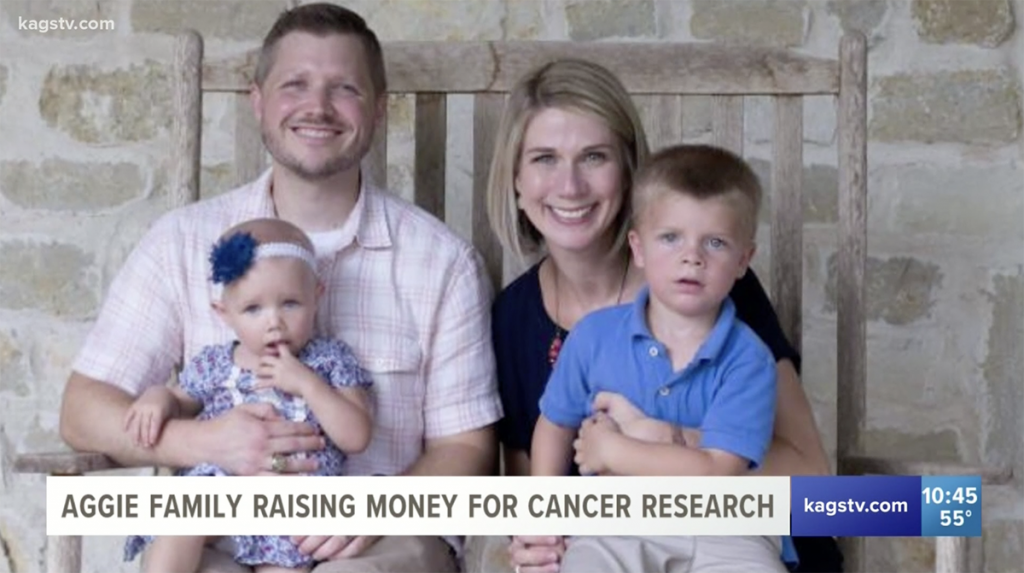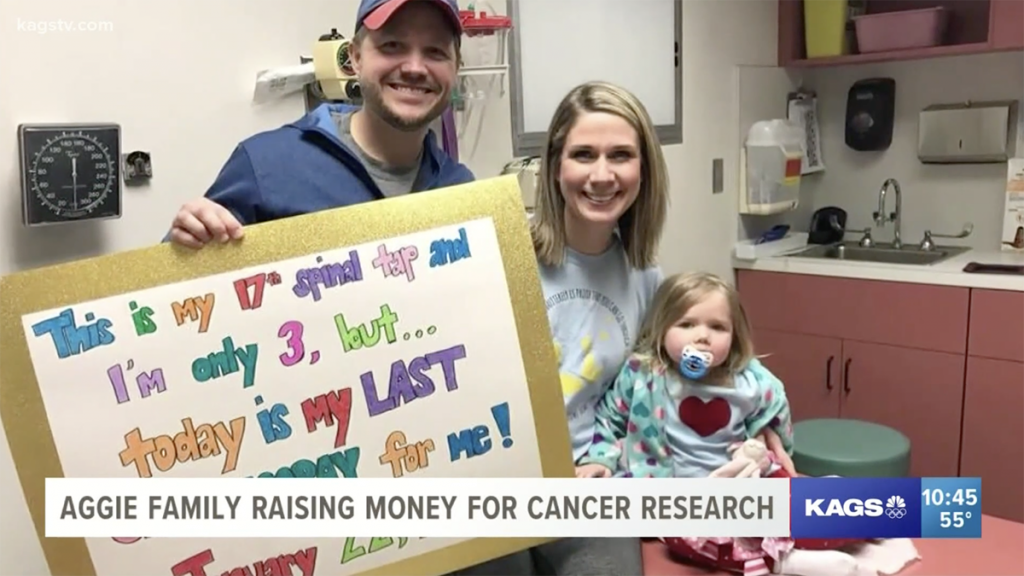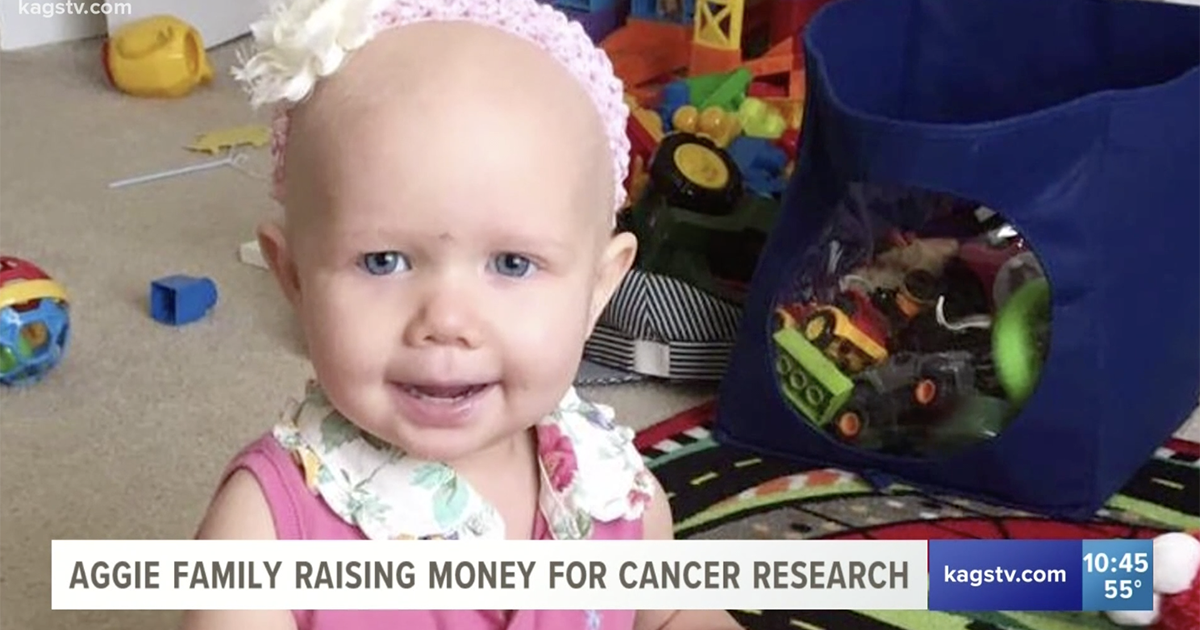Understanding Acute Lymphoblastic Leukemia
- A Texas family is raising money for a notable cancer research organization after one of their own was diagnosed with acute lymphoblastic leukemia nearly seven years ago.
- Hannah Hildebrand was just 1 year old when her parents received the news that their daughter had acute lymphoblastic leukemia. She was deemed cancer-free at 3 years old after two and a half years of treatment.
- Acute lymphoblastic leukemia is a cancer of the bone marrow. And unfortunately, leukemia is the most common cancer diagnosed in young children. In fact, three out of four pediatric cancer patients will be diagnosed with ALL.
The family recently made the decision to raise $100,000 after the Leukemia and Lymphoma Society named their very young daughter, Hannah Hildebrand, an honored hero.
Read More"I think you can be such a light. I hope to be such a light to other families that are in the thick of it," she adds.

Hannah's Cancer Diagnosis
Hannah was just 1 year old when her parents received the devastating news that their daughter had acute lymphoblastic leukemia; they were told of her diagnosis on Christmas Day in 2015.
Natalie says that leading up to the diagnosis, Hannah had an "acute virus" and she was having trouble breathing.
"The diagnosis was just something that was completely unexpected and not something we ever thought we would have to go through," Chris Hildebrand, Hannah's father, tells the television station.

Hannah was thankfully declared cancer-free at 3 years old after two and a half years of treatment. Natalie admits that they would not have been able to get through such a trying time without the support of their family.
"On mornings of very hard appointments, they were just really supportive in so many different ways," Natalie says.
Understanding Acute Lymphoblastic Leukemia
In general, acute lymphoblastic leukemia is a cancer of the bone marrow. This cancer occurs when the bone marrow makes too many immature lymphocytes a type of white blood cell. These blood cells are critical to the immune system, as they help fight infections by attacking bacteria, germs and viruses.
What is Acute Lymphoblastic Leukemia (ALL)?
"ALL is a type of cancer that is very aggressive," Dr. Olalekan Oluwole, a hematologist at Vanderbilt University Medical Center in Nashville, Tenn., tells SurvivorNet. "It grows very fast. Within a few weeks, a few months, the person will start to feel very sick. And that's why we will have to give it an equally aggressive type of treatment to break that cycle."
He says that many times, the leukemia rests in the bone marrow, and because it is an abnormal growth, it just keeps dividing.
"It doesn't follow rules, and it doesn't stop," he says. "Not only that, because this is part of the immune system, the immune system is sorta like the police of the body. So, those abnormal cells that have now become cancer, they have the ability to go to many places. They go into the blood, and they often go into the tissue or the lining around the brain."
"By the time somebody comes to us and they have ALL, we already assume that it has gone everywhere in the body, and we have to treat them like that," Dr. Oluwole adds.
All About Acute Lymphoblastic Leukemia: Answers to the Most Common Questions About the Disease
He says many patients present with fever or infections because the bone marrow has "failed in its ability to make other types of blood cells."
Leukemia is the most common cancer diagnosed in young children; three out of four pediatric cancer patients (including children and teens) will be diagnosed with ALL, according to the American Cancer Society.
How to Cope When Your Child Has Been Diagnosed With Cancer
If your child is diagnosed with childhood cancer, like leukemia in the Hildebrand family’s case, it may seem like the dreams you have for your family are falling apart. It is important to try to keep a level head after you have fully felt all of your emotions around the diagnosis.
The Value of Using a Social Worker During Treatment
But it is also important to feel all of those emotions that come along with receiving a childhood cancer diagnosis.
As a parent, remember that you are not alone in this journey; your child's oncologist and care team are there to guide you and provide information and answers. Oncological social workers are a fantastic resource to help you sort out the financial aspects of cancer treatment, as well as other cancer-related issues. Skilled psychologists and counselors can be accessed to help you maintain good mental health through your child's cancer journey, to the best of your ability.
And do not be afraid to reach out to your support system friends, family, etc. for help through this process; this is exactly what Hannah’s parents did to cope with their daughter’s leukemia diagnosis. No one expects you to handle everything on your own.
Contributing: Julie Ryan Evans
Learn more about SurvivorNet's rigorous medical review process.


